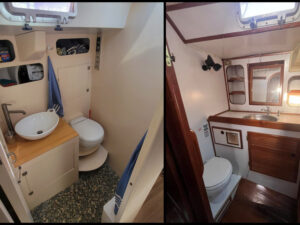Unless you have abundant free time, a penchant for paperwork, and intimate knowledge of pertinent local and Federal law, you’ll want to engage a yacht broker to handle the sale.
When selecting a broker with whom to list your boat, interview several, get references if you can from acquaintances, and choose one who has a good track record with vessels of similar type to yours. For added peace of mind, use a broker who’s a member of a regional or national professional association.
You can elect to open list your boat with more than one broker or you can choose one as the central-listing broker, but review both types of agreements before committing. Brokers generally prefer the central listing because that requires all requests for showings and all offers be funneled through the listing broker, who can then ensure that a client is fully apprised of all activity around the boat. A central listing also assures the broker works harder to present your boat to a broad market of buyers by advertising it and by circulating the listing among “corresponding” brokers.
If you choose to open list your boat, you can list it with as many brokers as you like, but this increases the risk of conflict arising when a potential buyer is in contact with several brokers at the same time.
The role of the listing broker is to actively seek customers, keep the owner informed of all offers presented whether to him directly or via corresponding brokers, and ensure that you deliver all necessary documents in a timely manner in the event of a closing. The listing broker is usually not the selling broker (and in some states or localities can’t be by law).
The selling broker shows the boat, presents any offer received to the listing broker, and obtains a deposit and other necessary documents from the prospective buyer.
As part of the listing agreement, you, the boat’s owner, will provide to the listing broker an inventory of loose equipment to be included in the sale. You must also disclose any known defects in the vessel and any known major repairs the vessel has undergone, such as might have been necessary after a hard grounding.
When a prospective purchaser makes an offer on the boat, it will usually be subject to sea trial and survey. If either of these events reveals deficiencies not disclosed in the listing agreement, the client is not obliged to pursue the sale, and once he’s paid the surveyor and settled yard bills incurred in conjunction with the survey or sea trial, can walk away with his deposit. Alternatively, he might want to renegotiate the offer.
If a sale falls through because of issues arising from a survey, you’ll have to react appropriately. You can address the deficiencies which were presented as cause for withdrawing the offer or you can add them to the disclosures in the listing agreement–they are now considered to be “known”-and adjust your asking price accordingly.
When you reach agreement on a price, and the survey and sea trial reveal no deal-breaking flaw in the boat, you and the buyer are committed to completing the sale, and you can each ink in on the calendar the forthcoming happiest day in both your lives.








